Entering the New Year With the Quran Verses & Du'as That Carried Haute Hijab Through
Faith
|
Dec 21, 2023
|
7 MIN READ
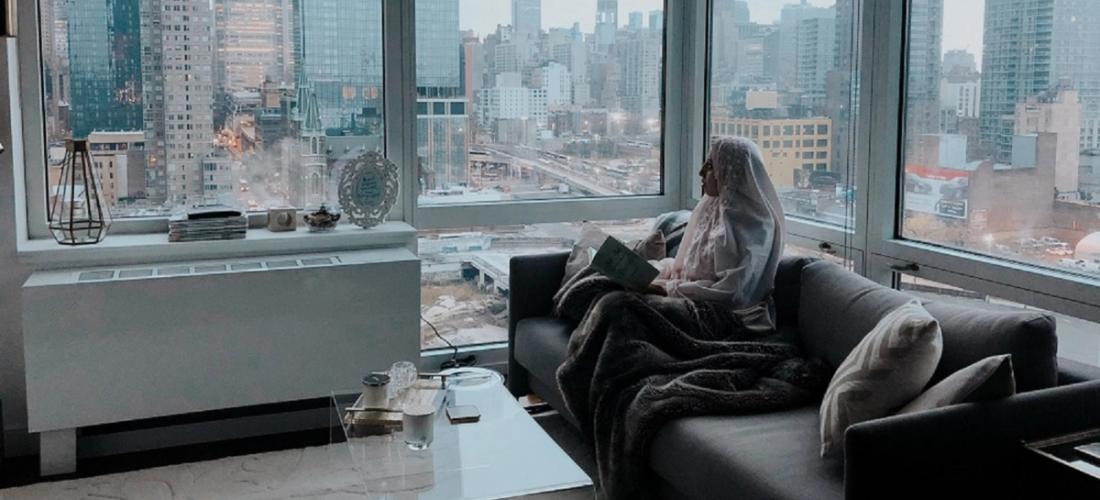
HH's Melanie at home reflecting in prayer
In the life of a Muslim, the Quran and du’a (supplication) hold a pivotal place, serving as sources of guidance, solace and spiritual nourishment. The Quran is more than a religious text. It is a comprehensive guide for life, addressing aspects from morality to law, personal conduct to community welfare.
Allah (S) says, "This is the Book about which there is no doubt, a guidance for those conscious of Allah." [Al-Baqarah 2:2] The act of reading the Quran, therefore, is not just a ritual but a transformative experience, offering insights and wisdom for all facets of life.
Du’a is a Muslim's way of asking for Allah's (S) help or forgiveness. It demonstrates a person's dependence on Allah (S) and is a testament to their trust in His (S) plan. The Prophet (saw) said, "Du'a is worship." [Tirmidhi] Muslims express their deepest desires, fears and gratitude through du’a, fostering a personal and emotional connection with Allah (S).
As we approach 2024, we – the Haute Hijab team – think that the most appropriate way to see 2023 out is sharing Quran ayahs, surahs or du’as that we held deep in our souls the past year, and which we intend to carry with us into the new year. This practice underscores the profound impact of Islamic teachings on daily life and personal growth. And as you read the Quran ayahs and du’as we chose, you’ll see that many of us chose the same ones, though what we gained from these particular verses differ from person to person.
Ending the year with a focus on the Quran and du’a represents our collective commitment to spiritual growth, self-reflection and living a life aligned with Islamic principles. Each chosen verse or du’a carries personal significance, reflecting individual journeys and aspirations.
Noor Suleiman – HH Marketing Manager
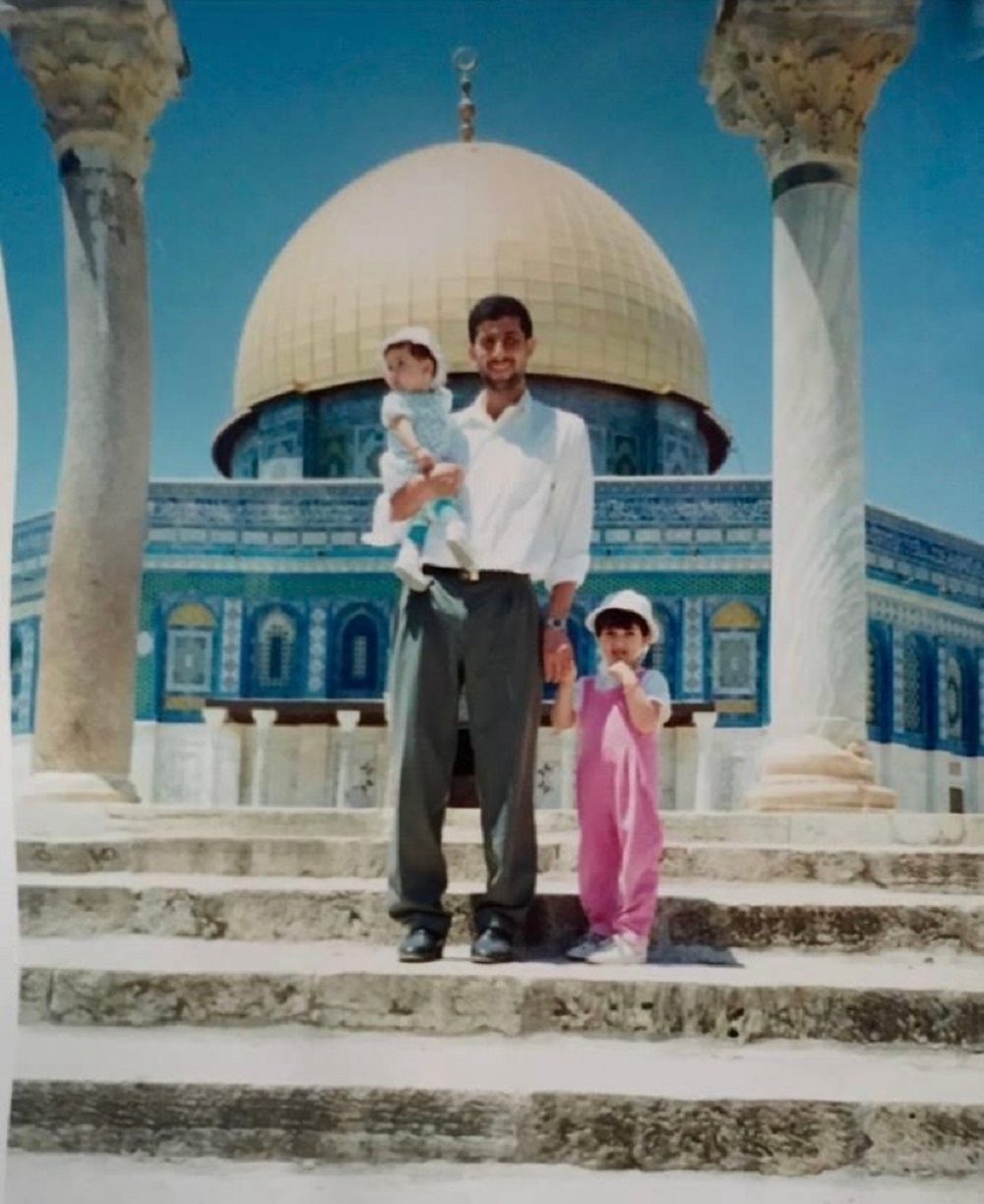
Noor Suleiman (in pink) holding her father's hand and standing in front of Al Aqsa masjid in Jerusalem, circa 1995. In her father's arms is Noor's baby sister.
As a Palestinian, the verses I'm choosing are very relevant and tied to the genocide happening in Gaza – as well as the calamities that struck different parts of the world throughout this year. From major earthquakes, to civil wars, to other genocides (like in Congo), these two ayahs keep coming to mind over and over again, and they're what give me solace. What a stark reminder this year has been about the temporary state of this dunya, and a constant reminder that we were created for the afterlife. That is the true life.
The first verses I reflect on are:
Never think of those martyred in the cause of Allah as dead. In fact, they are alive with their Lord, well provided for – rejoicing in Allah’s bounties and being delighted for those yet to join them. There will be no fear for them, nor will they grieve.
3:169, 170
Those who are martyred are good. They are in the highest of heavens with Allah (S) "rejoicing in Allah's bounties". It is painful for us to watch on our end, but Allah (S) gives us reassurance that there is no suffering for them. It helps me to not despair.
The second verse I would like to reflect on is actually a few verses down from the above two verses of Surah Imran:
Those who were warned, “Your enemies have mobilized their forces against you, so fear them,” the warning only made them grow stronger in faith and they replied, “Allah [alone] is sufficient [as an aid] for us and [He] is the best Protector."
3:173
Over and over again I have watched the people of Gaza remind themselves – in the face of death and destruction and profound loss that is hard to comprehend – they keep repeating "hasbiya Allahu wa ni'ma alwakeel." Allah (S) alone is sufficient for us and He is the best protector. Over and over again this is on their tongues. And so over and over again, it's on my tongue.
Allah (S) is sufficient for us. Allah is the best protector. He knows. He sees. There will be a day of reckoning. He knows. He sees. He is enough for us. He is the best protector. Without Allah (S)'s reassurances, we would surely have fallen into despair.
Hasbiya Allahu wa ni'ma alwakeel. Alhamdulillah.
Sandy Abdallah – HH CX Manager
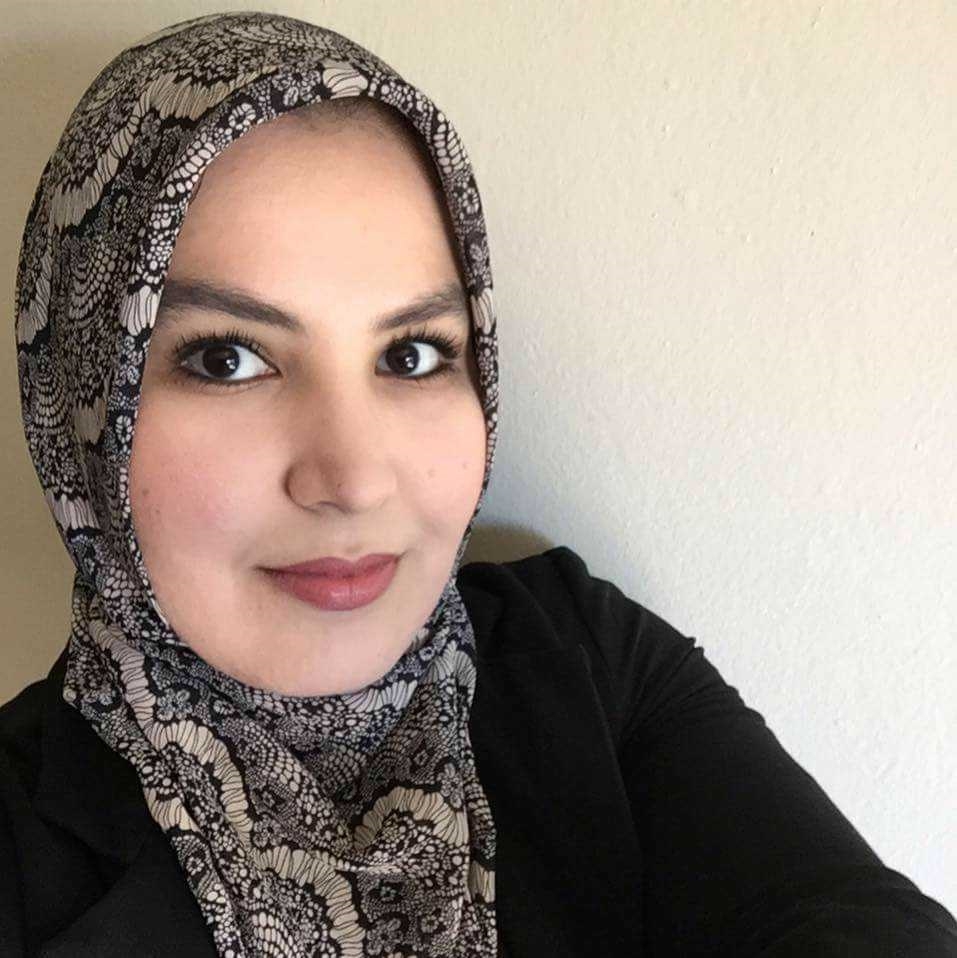
Sandy Abdallah
Currently, The Quran verse in my head is “hasbunAllah wa ni’mal wakeel.” (حَسْبُنَا اللَّـهُ وَنِعْمَ الْوَكِيلُ) It’s been so tough to bear witness to a genocide. Yet, the Palestinians in Gaza suffering from death and destruction continue to express the strength of their faith over the calamities they are experiencing as they say this exact prayer over and over again.
To have this level of unwavering belief that Allah (S) alone is sufficient for us and He (S) is the best disposer of affairs is empowering and freeing! Despite any hardships or uncertainties when it comes to my family, health or major life changes, this prayer calms my heart, and I know that eventually things will be okay because Allah (S) is in control.
Danah Shuli – HH Blog Writer
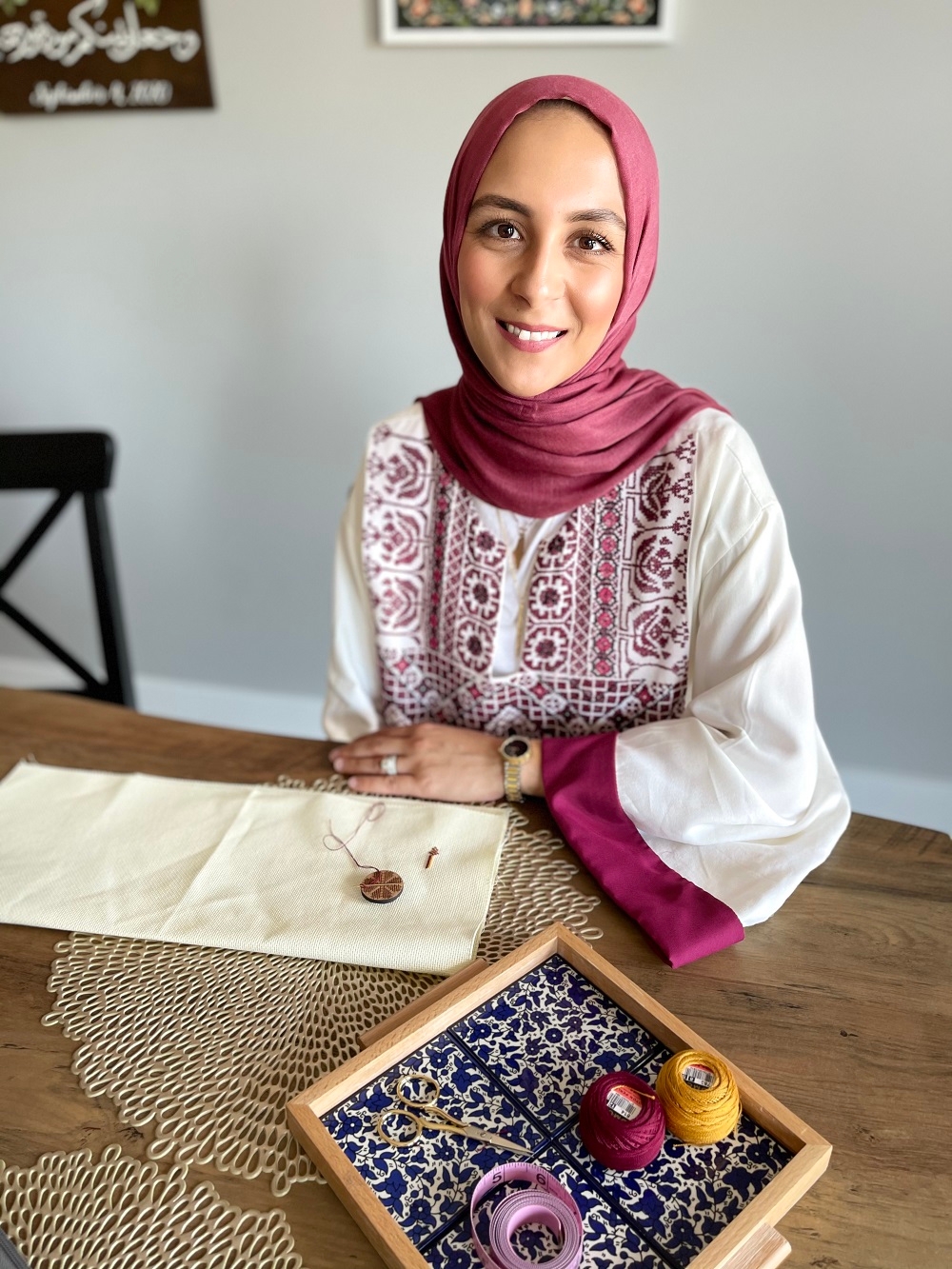
Danah Shuli
The first two months of the war on Gaza felt like an everlasting funeral at home. I found it hard to carry on with my day-to-day tasks. My two young children’s needs were the only thing pulling me to go through the motions of our daily routine. My mind, heart and soul were in a different space than my body. I couldn’t comprehend, or understand what was happening, what is still happening, so I held on to the only thing I knew to be true.
One thing that I know will never fail me. Only one thing mattered to me in that phase of processing my grief, and that was to turn to the promise and reassurance of the only one who has full control over all affairs, Allah (S). In my despair, confusion and heartache, the words of Allah (S), dhikr and salah are my only source of comfort.
Verily in the remembrance of Allah (S) to hearts find rest.
13:28
Also, “Sufficient for us is Allah, and [He is] the best Disposer of affairs.” [3:173] As we enter 2024, these words are my anchor as my people continue to endure an ethnic cleansing and fight for their freedom.
Elizabeth Walsh – HH Product Development Manager
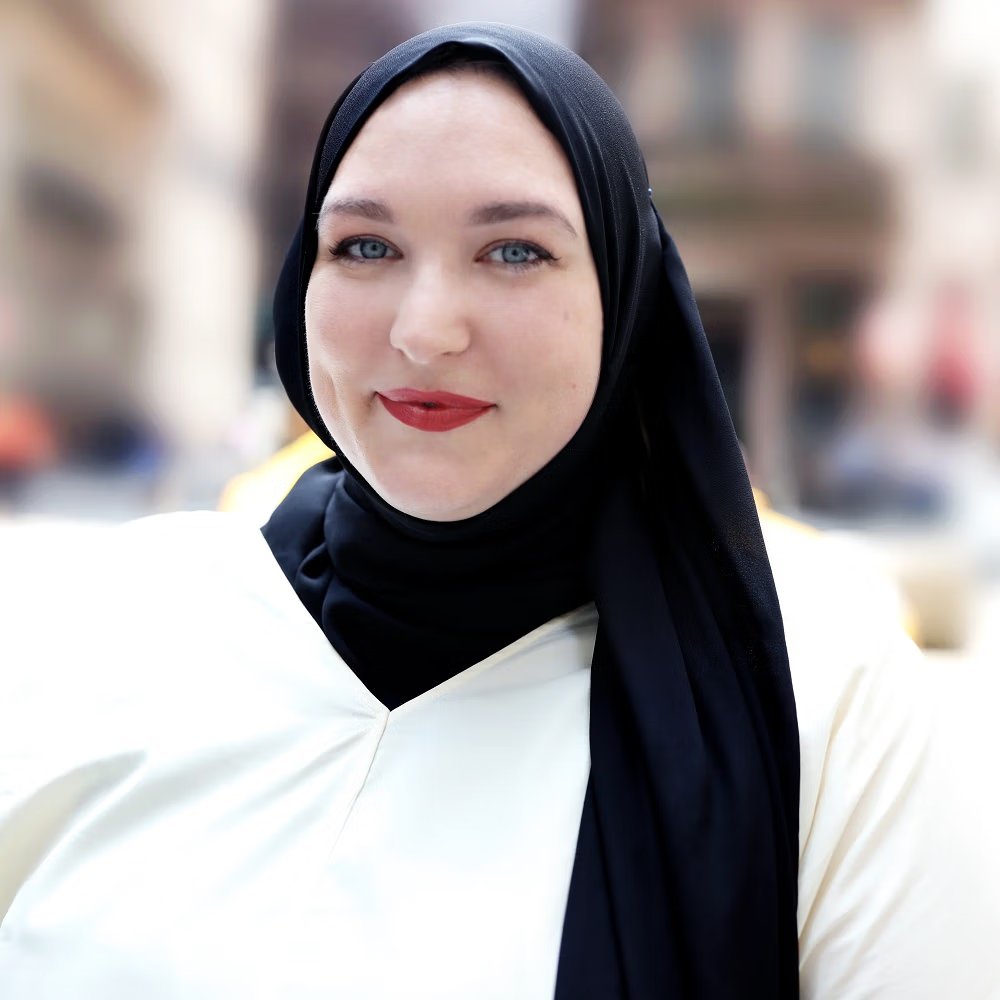
Elizabeth Walsh
Surah Asr has consistently been one of my favorite surahs in recent years. As someone who often procrastinates, this surah serves as a powerful reminder to use my time wisely and constructively. It emphasizes the loss of time, which motivates me to take action and stop delaying my tasks.
Dilshad Ali – HH Blog and Content Editor
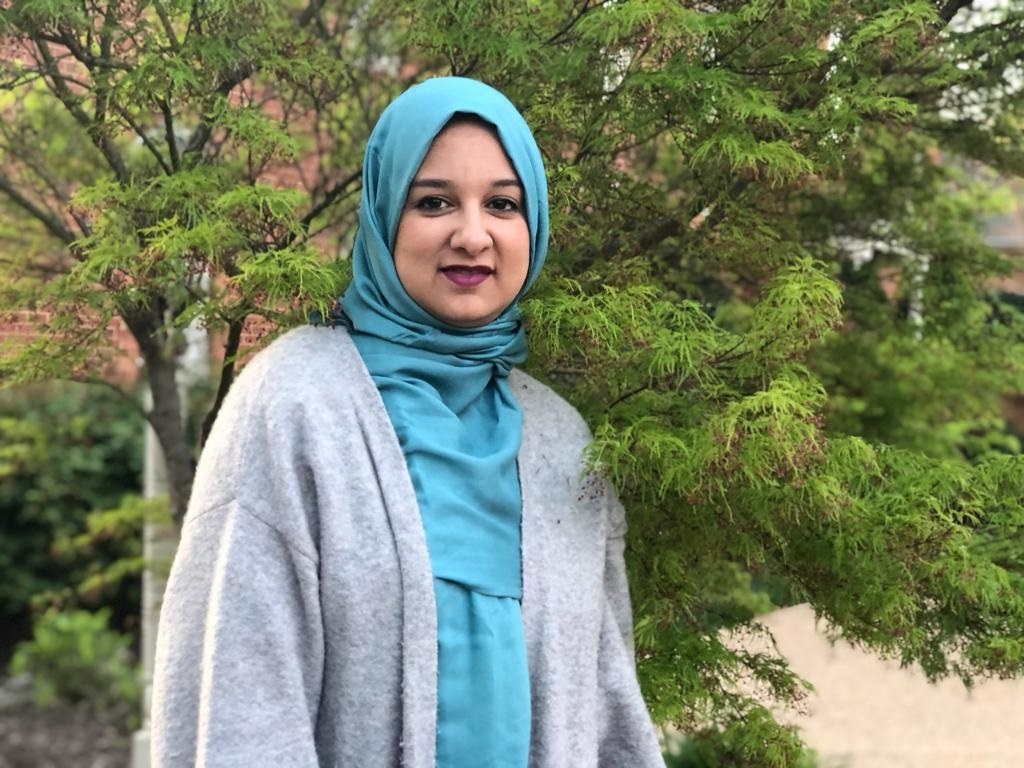
Dilshad D. Ali
Hasbunallah wa ni’mal-Wakil
Sufficient for us is Allah, and [He is] the best Disposer of affairs
Prophet Muhammad (saw) was recorded saying to a man who asked, “'How can I feel at ease when the Angel of the Trumpet has put his lips to the Trumpet and is waiting for the order to blow it?' He perceived as if this had shocked his Companions, so he told them to seek comfort through reciting: Hasbunallah wa ni’mal-Wakil." [ Riyad As-Salihin hadith]
This du'a is from Surah Al Imran, verse 173, which states,
Those to whom hypocrites said, "Indeed, the people have gathered against you, so fear them." But it [merely] increased them in faith, and they said, "Sufficient for us is Allah, and [He is] the best Disposer of affairs."
This Quran verse has been all over social media the past several months as the genocide in Gaza and strife in other parts of the world have gripped our hearts. And really, this is a verse that has been carrying me in 2023, which is yet another year that has shown me that I am not in control, that I can plan, but Allah (S) is the best of planners. That whatever Allah (S) deems to be sufficient for us, we must find our contentment in that. He is, indeed, the best disposer of affairs.
As you're reading this, my family and I are in Makkah for Umrah, Alhamdullilah. But we were unable to bring our profoundly autistic eldest son with us, and that has been the biggest vice-grip around my heart. My husband and I went for Hajj nearly 20 years ago, and I still remember what I prayed for when I first saw the Ka'ba. My prayer hasn't been answered exactly how I asked for it. But I am content, because it is being answered in a way that is best for me, for my kids, for my son. To be content in Allah's (S) will is the hardest and best thing we can do.
Layla Abdullah-Poulos – HH Blog Writer
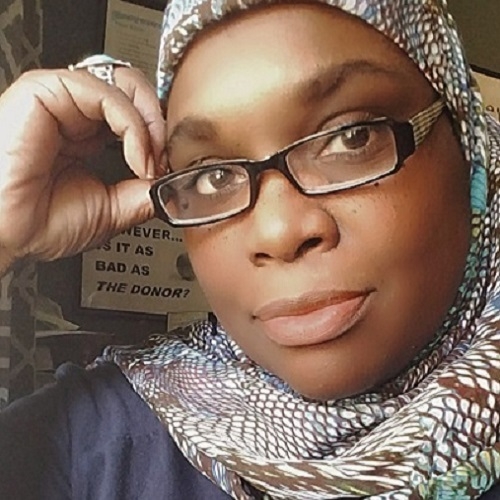
Layla Abdullah-Poulos
As I approach 2024, the ayah from the Quran, "Say (on My behalf), 'O servants of Mine who have acted recklessly against their own selves, do not despair of Allah’s mercy. Surely, Allah will forgive all sins. Surely, He is the One who is the Most-Forgiving, the Very-Merciful.'”[39:53] holds a profound significance for me. This verse is a powerful beacon of hope and forgiveness, reminding me that no matter the mistakes I've made or the challenges I face, the mercy and forgiveness of Allah (S) are always accessible.
It reinforces the importance of seeking forgiveness and maintaining hope, especially when I am burdened by my shortcomings or the difficulties of life. As I step into the new year, this message of divine compassion and endless mercy is a guiding light, inspiring me to maintain an optimistic outlook and a renewed dedication to my personal and spiritual development.
Heading into 2024, this verse becomes particularly meaningful in the context of my work with a racial equity nonprofit. It embodies the principles of compassion, mercy, and forgiveness that are crucial in my interactions and efforts. The ethos of this ayah aligns with the values of understanding, tolerance and the capacity to forgive, not just personally but also in the wider societal sphere.
In a world often rife with division and injustice, this message of the Quran offers a path toward healing and unity. It inspires me to approach my work and daily life with a heart that reflects these divine qualities, reminding me that every individual has the potential for redemption and change. This encourages me to adopt a more empathetic and inclusive approach in all my endeavors as I navigate the year ahead.
As we embrace 2024, let us carry with us the wisdom of the Quran and the power of du’a, allowing them to illuminate our paths and enrich our souls.
Subscribe to be the first to know about new product releases, styling ideas and more.
What products are you interested in?

